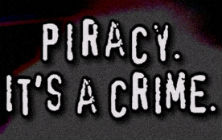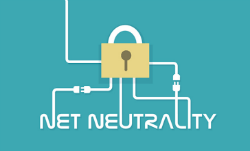 The UK’s Intellectual Property Office has published its annual IP Crime Report, spanning the period 2016 to 2017.
The UK’s Intellectual Property Office has published its annual IP Crime Report, spanning the period 2016 to 2017.
It covers key events in the copyright and trademark arenas and is presented with input from the police and trading standards, plus private entities such as the BPI, Premier League, and Federation Against Copyright Theft, to name a few.
The report begins with an interesting statistic. Despite claims that many millions of UK citizens regularly engage in some kind of infringement, figures from the Ministry of Justice indicate that just 47 people were found guilty of offenses under the Copyright, Designs and Patents Act during 2016. That’s down on the 69 found guilty in the previous year.
Despite this low conviction rate, 15% of all internet users aged 12+ are reported to have consumed at least one item of illegal content between March and May 2017. Figures supplied by the Industry Trust for IP indicate that 19% of adults watch content via various IPTV devices – often referred to as set-top, streaming, Android, or Kodi boxes.
“At its cutting edge IP crime is innovative. It exploits technological loopholes before they become apparent. IP crime involves sophisticated hackers, criminal financial experts, international gangs and service delivery networks. Keeping pace with criminal innovation places a burden on IP crime prevention resources,” the report notes.
The report covers a broad range of IP crime, from counterfeit sportswear to foodstuffs, but our focus is obviously on Internet-based infringement. Various contributors cover various aspects of online activity as it affects them, including music industry group BPI.
“The main online piracy threats to the UK recorded music industry at present are from BitTorrent networks, linking/aggregator sites, stream-ripping sites, unauthorized streaming sites and cyberlockers,” the BPI notes.
The BPI’s website blocking efforts have been closely reported, with 63 infringing sites blocked to date via various court orders. However, the BPI reports that more than 700 related URLs, IP addresses, and proxy sites/ proxy aggregators have also been rendered inaccessible as part of the same action.
“Site blocking has proven to be a successful strategy as the longer the blocks are in place, the more effective they are. We have seen traffic to these sites reduce by an average of 70% or more,” the BPI reports.
While prosecutions against music pirates are a fairly rare event in the UK, the Crown Prosecution Service (CPS) Specialist Fraud Division highlights that their most significant prosecution of the past 12 months involved a prolific music uploader.
As first revealed here on TF, Wayne Evans was an uploader not only on KickassTorrents and The Pirate Bay, but also some of his own sites. Known online as OldSkoolScouse, Evans reportedly cost the UK’s Performing Rights Society more than £1m in a single year. He was sentenced in December 2016 to 12 months in prison.
While Evans has been free for some time already, the CPS places particular emphasis on the importance of the case, “since it provided sentencing guidance for the Copyright, Designs and Patents Act 1988, where before there was no definitive guideline.”
The CPS says the case was useful on a number of fronts. Despite illegal distribution of content being difficult to investigate and piracy losses proving tricky to quantify, the court found that deterrent sentences are appropriate for the kinds of offenses Evans was accused of.
The CPS notes that various factors affect the severity of such sentences, not least the length of time the unlawful activity has persisted and particularly if it has done so after the service of a cease and desist notice. Other factors include the profit made by defendants and/or the loss caused to copyright holders “so far as it can accurately be calculated.”
Importantly, however, the CPS says that beyond issues of personal mitigation and timely guilty pleas, a jail sentence is probably going to be the outcome for others engaging in this kind of activity in future. That’s something for torrent and streaming site operators and their content uploaders to consider.
“[U]nless the unlawful activity of this kind is very amateur, minor or short-lived, or in the absence of particularly compelling mitigation or other exceptional circumstances, an immediate custodial sentence is likely to be appropriate in cases of illegal distribution of copyright infringing articles,” the CPS concludes.
But while a music-related trial provided the highlight of the year for the CPS, the online infringement world is still dominated by the rise of streaming sites and the now omnipresent “fully-loaded Kodi Box” – set-top devices configured to receive copyright-infringing live TV and VOD.
In the IP Crime Report, the Intellectual Property Office references a former US Secretary of Defense to describe the emergence of the threat.
“The echoes of Donald Rumsfeld’s famous aphorism concerning ‘known knowns’ and ‘known unknowns’ reverberate across our landscape perhaps more than any other. The certainty we all share is that we must be ready to confront both ‘known unknowns’ and ‘unknown unknowns’,” the IPO writes.
“Not long ago illegal streaming through Kodi Boxes was an ‘unknown’. Now, this technology updates copyright infringement by empowering TV viewers with the technology they need to subvert copyright law at the flick of a remote control.”
While the set-top box threat has grown in recent times, the report highlights the important legal clarifications that emerged from the BREIN v Filmspeler case, which found itself before the European Court of Justice.
As widely reported, the ECJ determined that the selling of piracy-configured devices amounts to a communication to the public, something which renders their sale illegal. However, in a submission by PIPCU, the Police Intellectual Property Crime Unit, box sellers are said to cast a keen eye on the legal situation.
“Organised criminals, especially those in the UK who distribute set-top boxes, are aware of recent developments in the law and routinely exploit loopholes in it,” PIPCU reports.
“Given recent judgments on the sale of pre-programmed set-top boxes, it is now unlikely criminals would advertise the devices in a way which is clearly infringing by offering them pre-loaded or ‘fully loaded’ with apps and addons specifically designed to access subscription services for free.”
With sellers beginning to clean up their advertising, it seems likely that detection will become more difficult than when selling was considered a gray area. While that will present its own issues, PIPCU still sees problems on two fronts – a lack of clear legislation and a perception of support for ‘pirate’ devices among the public.
“There is no specific legislation currently in place for the prosecution of end users or sellers of set-top boxes. Indeed, the general public do not see the usage of these devices as potentially breaking the law,” the unit reports.
“PIPCU are currently having to try and ‘shoehorn’ existing legislation to fit the type of criminality being observed, such as conspiracy to defraud (common law) to tackle this problem. Cases are yet to be charged and results will be known by late 2017.”
Whether these prosecutions will be effective remains to be seen, but PIPCU’s comments suggest an air of caution set to a backdrop of box-sellers’ tendency to adapt to legal challenges.
“Due to the complexity of these cases it is difficult to substantiate charges under the Fraud Act (2006). PIPCU have convicted one person under the Serious Crime Act (2015) (encouraging or assisting s11 of the Fraud Act). However, this would not be applicable unless the suspect had made obvious attempts to encourage users to use the boxes to watch subscription only content,” PIPCU notes, adding;
“The selling community is close knit and adapts constantly to allow itself to operate in the gray area where current legislation is unclear and where they feel they can continue to sell ‘under the radar’.”
More generally, pirate sites as a whole are still seen as a threat. As reported last month, the current anti-piracy narrative is that pirate sites represent a danger to their users. As a result, efforts are underway to paint torrent and streaming sites as risky places to visit, with users allegedly exposed to malware and other malicious content. The scare strategy is supported by PIPCU.
“Unlike the purchase of counterfeit physical goods, consumers who buy unlicensed content online are not taking a risk. Faulty copyright doesn’t explode, burn or break. For this reason the message as to why the public should avoid copyright fraud needs to be re-focused.
“A more concerted attempt to push out a message relating to malware on pirate websites, the clear criminality and the links to organized crime of those behind the sites are crucial if public opinion is to be changed,” the unit advises.
But while the changing of attitudes is desirable for pro-copyright entities, PIPCU says that winning over the public may not prove to be an easy battle. It was given a small taste of backlash itself, after taking action against the operator of a pirate site.
“The scale of the problem regarding public opinion of online copyright crime is evidenced by our own experience. After PIPCU executed a warrant against the owner of a streaming website, a tweet about the event (read by 200,000 people) produced a reaction heavily weighted against PIPCU’s legitimate enforcement action,” PIPCU concludes.
In summary, it seems likely that more effort will be expended during the next 12 months to target the set-top box threat, but there doesn’t appear to be an abundance of confidence in existing legislation to tackle all but the most egregious offenders. That being said, a line has now been drawn in the sand – if the public is prepared to respect it.
The full IP Crime Report 2016-2017 is available here (pdf)
Source: TF, for the latest info on copyright, file-sharing, torrent sites and ANONYMOUS VPN services.

 More and more people are starting to use Kodi-powered set-top boxes to stream video content to their TVs.
More and more people are starting to use Kodi-powered set-top boxes to stream video content to their TVs.
 This summer, millions of people
This summer, millions of people  Founded way back in 2006, SwePiracy grew to become one of the most famous private torrent sites on the Swedish scene. Needless to say, it also became a target for anti-piracy outfits.
Founded way back in 2006, SwePiracy grew to become one of the most famous private torrent sites on the Swedish scene. Needless to say, it also became a target for anti-piracy outfits.